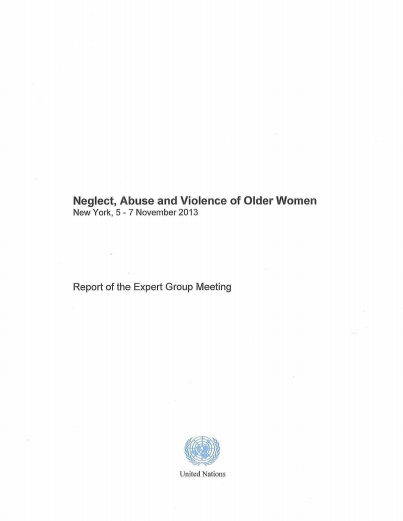“The aim of the expert group meeting was to inform the debate on neglect, abuse and violence against older women from various perspectives by addressing issue related to assessment, as well as approaches to abuse prevention and protection. The meeting offered an important opportunity to frame the debate about neglect, abuse and violence of older women and provide a way forward for the work of the United Nations system by expanding knowledge about the specific situation of older women and the elimination of violence and abuse against them and ensuring their inclusion is ongoing work.”
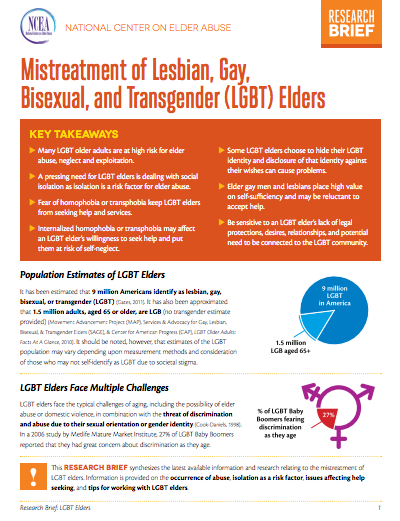 “Many LGBT older adults are at high risk for elder abuse, neglect and exploitation.
“Many LGBT older adults are at high risk for elder abuse, neglect and exploitation.
This research brief synthesizes the latest available information and research relating to the mistreatment of LGBT elders. Information is provided on the occurrence of abuse, isolation as a risk factor, issues affecting help seeking and tips for working with LGBT elders."
Source: FORGE Transgender Aging Network (USA); National Resource Center on LGBT Aging (USA)
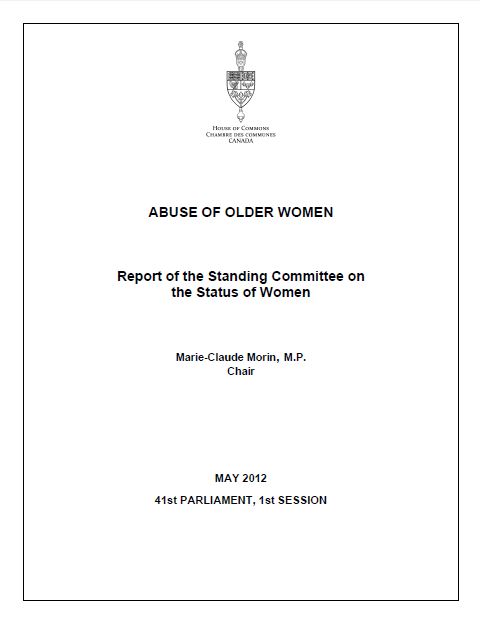
Source: Parliament of Canada
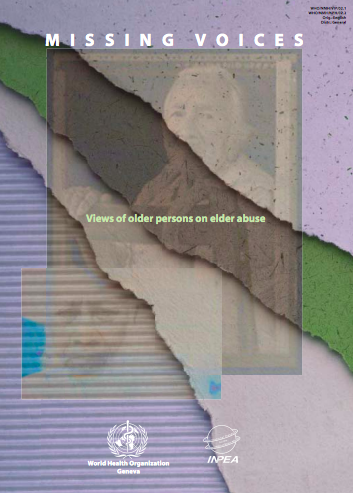 "A study from eight countries: Argentina, Austria, Brazil, Canada, India, Kenya, Lebanon and Sweden. The study's main approach involved the conduct of focus groups with older persons in the community, and with primary health care workers, in order to establish components of elder abuse as identified by older people themselves and by those forming the primary health care teams. A focus on primary health care was chosen as it is within this context that elder abuse can first be identified - or overlooked altogether.
"A study from eight countries: Argentina, Austria, Brazil, Canada, India, Kenya, Lebanon and Sweden. The study's main approach involved the conduct of focus groups with older persons in the community, and with primary health care workers, in order to establish components of elder abuse as identified by older people themselves and by those forming the primary health care teams. A focus on primary health care was chosen as it is within this context that elder abuse can first be identified - or overlooked altogether.
This report presents the design and findings of the study, and the conclusions of a meeting aimed at identifying the indications for policy, research and action emerging from these study findings. Reports from each country prepared by the national teams were reviewed and analysed."
Source: World Health Organization
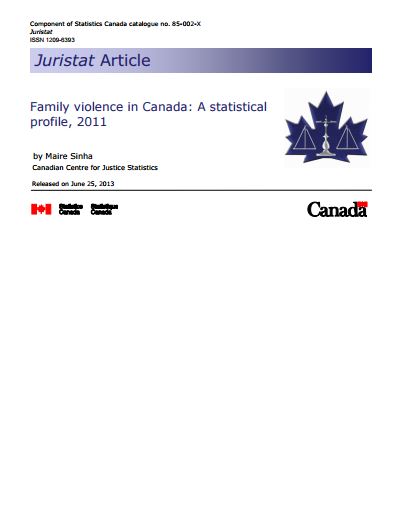
Using police-reported data from the Uniform Crime Reporting (UCR) Survey, this section [section 5 of the report] will present information on the nature and extent of family violence against seniors. It will examine the prevalence of family violence against seniors at the national, provincial/territorial and census metropolitan area levels. In addition, this section will explore the characteristics of family violence against seniors, presenting information on the most common types of violence experienced, the use of weapons, injuries sustained and how these incidents are cleared by police. Finally, this section will conclude with a discussion of homicide, the most serious form of family violence against seniors."
Source: Statistics Canada
Page 17 of 20


